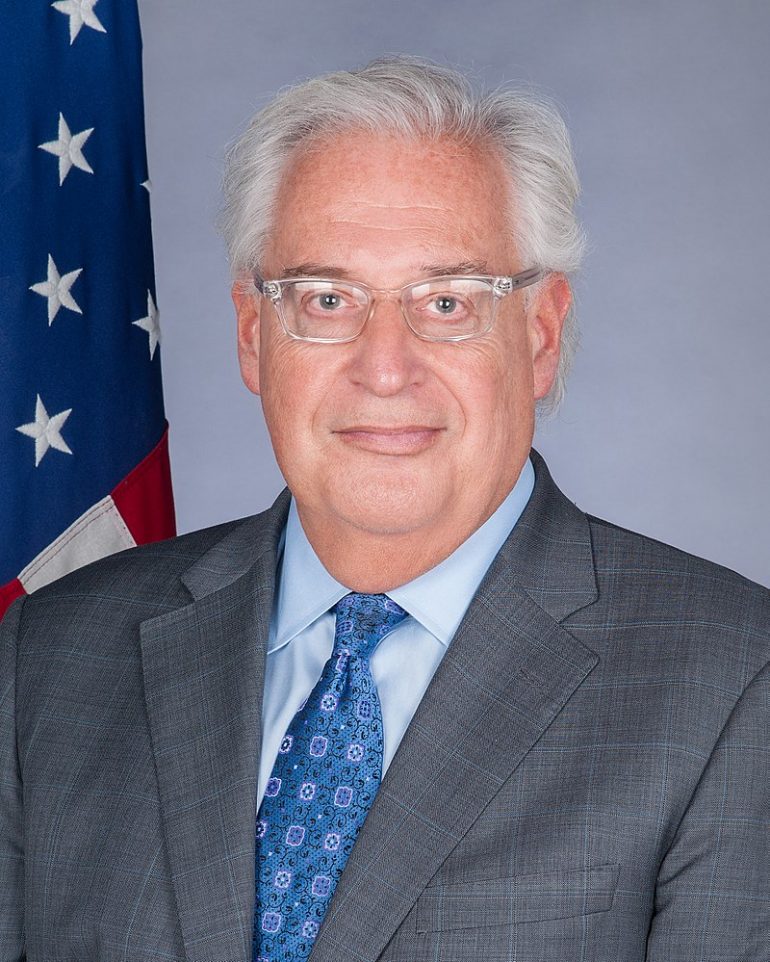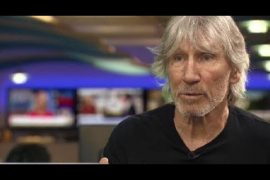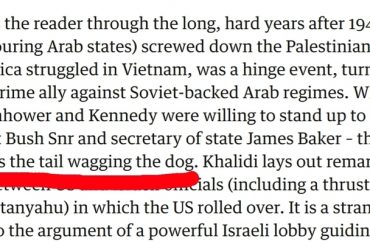Last week, we posted about a Telegraph article focusing on newly appointed US-Middle East peace envoy Avi Berkowitz which, we argued, evoked an antisemitic trope.
Here are the relevant paragraphs from that Sept. 6th piece, written by Leila Molana-Allen (the Middle East correspondent for France 24 News).
The appointment [of Berkowitz] “demonstrates a lack of seriousness” in the administration’s approach to the peace plan and Mr Kushner’s complete dominance over the process, former Middle East advisor to the US defence department Jasmine El-Gamal told The Telegraph. “They are not even pretending otherwise by hiring a qualified person as an envoy.”
Others have raised concerns that Mr Berkowitz, like Mr Greenblatt before him and Mr Kushner, is a Zionist Jew, which may lead to a perception of bias in any peace negotiations with Palestinian officials.
This doesn’t need too much unpacking. The word “Zionist” before “Jew” is meaningless, as the overwhelming majority of diaspora Jews are Zionists, in the sense that they wish for Israel to continue existing. The journalist was legitimising unnamed critics who evidently believe there are too many Jews on Trump’s Middle East team, and that these officials, by virtue of their religious background, can’t be trusted to faithfully carry out their duties. This is a classic example of a news organisation – which, we should note, is normally very responsible on the issue of antisemitism – legtimising the dual loyalty charge, codified as antisemitic by the IHRA Working Definition.
Let’s turn now to another article, one published on Sept. 15th by Bel Trew at the Independent – a publication which, unlike the Telegraph, hasn’t always been so vigilant about preventing antisemitic narratives from being promoted.
Like the Telegraph piece, Trew’s article also raises the question of conflicts of interest against some Jewish members of Trump’s Mid-East team.
However, Trew raises the concerns in a completely different manner than Molana-Allen did at the Telegraph, noting not the religion of US Ambassador David Friedman and Senior Advisor Jared Kushner (architect of the US peace plan), but, rather, their personal and financial ties to Israeli settlements, particularly the community of Beit El.
Trew highlights the fact that Friedman and Kushner’s family have given significant donations to Beit El. (She also adds that former US National Security Advisor John Bolton spoke at a fundraising event for the settlement.)
Trew makes her argument thusly:
And it is the unique relationship Trump’s cadres have with this settlement that is a keyhole to the overhaul in the US administration’s attitudes towards Israel’s policies in the Palestinian territories as a whole.
To be clear, we’re extremely skeptical that Friedman and Kushner’s ties to Beit El provide a “keyhole” to the shift in US policies towards Israel, as Trew’s explanation leaves out other important factors likely impacting US policy. It also fails to consider that Friedman’s and Kushner’s important roles may merely be a reflection of the president’s desired Mid-East policy, rather than representing a force driving it.
However, at least Trew’s argument doesn’t rest on the implicit assumption that the religious background of Friedman and Kushner (and Berkowitz) alone renders them biased – a toxic and racist charge that should have no place in mainstream British publications.
Related Articles
- Glenn Greenwald keeps an ugly calumny alive (UK Media Watch)





